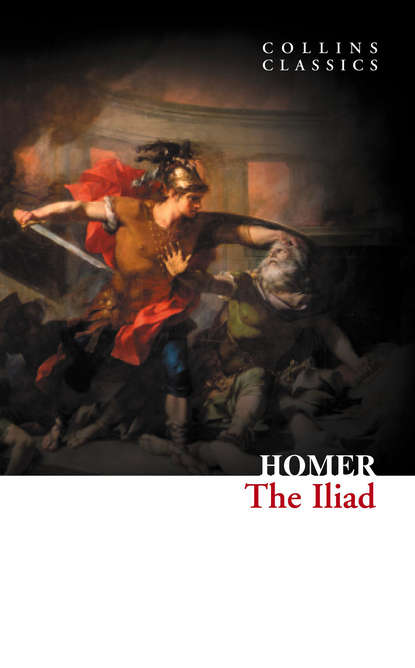скачать книгу бесплатно
“Ye sons of Mars, partake your leader’s care,
Heroes of Greece, and brothers of the war!
Of partial Jove with justice I complain,
And heavenly oracles believed in vain
A safe return was promised to our toils,
Renown’d, triumphant, and enrich’d with spoils.
Now shameful flight alone can save the host,
Our blood, our treasure, and our glory lost.
So Jove decrees, resistless lord of all!
At whose command whole empires rise or fall:
He shakes the feeble props of human trust,
And towns and armies humbles to the dust
What shame to Greece a fruitful war to wage,
Oh, lasting shame in every future age!
Once great in arms, the common scorn we grow,
Repulsed and baffled by a feeble foe.
So small their number, that if wars were ceased,
And Greece triumphant held a general feast,
All rank’d by tens, whole decades when they dine
Must want a Trojan slave to pour the wine.
But other forces have our hopes o’erthrown,
And Troy prevails by armies not her own.
Now nine long years of mighty Jove are run,
Since first the labours of this war begun:
Our cordage torn, decay’d our vessels lie,
And scarce insure the wretched power to fly.
Haste, then, for ever leave the Trojan wall!
Our weeping wives, our tender children call:
Love, duty, safety, summon us away,
’Tis nature’s voice, and nature we obey,
Our shatter’d barks may yet transport us o’er,
Safe and inglorious, to our native shore.
Fly, Grecians, fly, your sails and oars employ,
And dream no more of heaven-defended Troy.”
His deep design unknown, the hosts approve
Atrides’ speech. The mighty numbers move.
So roll the billows to the Icarian shore,
From east and south when winds begin to roar,
Burst their dark mansions in the clouds, and sweep
The whitening surface of the ruffled deep.
And as on corn when western gusts descend,
Before the blast the lofty harvests bend:
Thus o’er the field the moving host appears,
With nodding plumes and groves of waving spears.
The gathering murmur spreads, their trampling feet
Beat the loose sands, and thicken to the fleet;
With long-resounding cries they urge the train
To fit the ships, and launch into the main.
They toil, they sweat, thick clouds of dust arise,
The doubling clamours echo to the skies.
E’en then the Greeks had left the hostile plain,
And fate decreed the fall of Troy in vain;
But Jove’s imperial queen their flight survey’d,
And sighing thus bespoke the blue-eyed maid:
“Shall then the Grecians fly! O dire disgrace!
And leave unpunish’d this perfidious race?
Shall Troy, shall Priam, and the adulterous spouse,
In peace enjoy the fruits of broken vows?
And bravest chiefs, in Helen’s quarrel slain,
Lie unrevenged on yon detested plain?
No: let my Greeks, unmoved by vain alarms,
Once more refulgent shine in brazen arms.
Haste, goddess, haste! the flying host detain,
Nor let one sail be hoisted on the main.”
Pallas obeys, and from Olympus’ height
Swift to the ships precipitates her flight.
Ulysses, first in public cares, she found,
For prudent counsel like the gods renown’d:
Oppress’d with generous grief the hero stood,
Nor drew his sable vessels to the flood.
“And is it thus, divine Laertes’ son,
Thus fly the Greeks (the martial maid begun),
Thus to their country bear their own disgrace,
And fame eternal leave to Priam’s race?
Shall beauteous Helen still remain unfreed,
Still unrevenged, a thousand heroes bleed!
Haste, generous Ithacus! prevent the shame,
Recall your armies, and your chiefs reclaim.
Your own resistless eloquence employ,
And to the immortals trust the fall of Troy.”
The voice divine confess’d the warlike maid,
Ulysses heard, nor uninspired obey’d:
Then meeting first Atrides, from his hand
Received the imperial sceptre of command.
Thus graced, attention and respect to gain,
He runs, he flies through all the Grecian train;
Each prince of name, or chief in arms approved,
He fired with praise, or with persuasion moved.
“Warriors like you, with strength and wisdom bless’d,
By brave examples should confirm the rest.
The monarch’s will not yet reveal’d appears;
He tries our courage, but resents our fears.
The unwary Greeks his fury may provoke;
Not thus the king in secret council spoke.
Jove loves our chief, from Jove his honour springs,
Beware! for dreadful is the wrath of kings.”
But if a clamorous vile plebeian rose,
Him with reproof he check’d or tamed with blows.
“Be still, thou slave, and to thy betters yield;
Unknown alike in council and in field!
